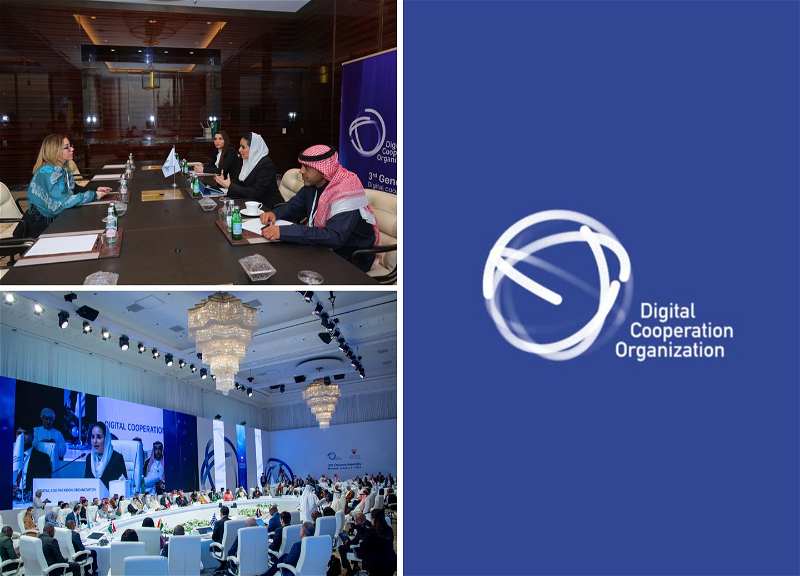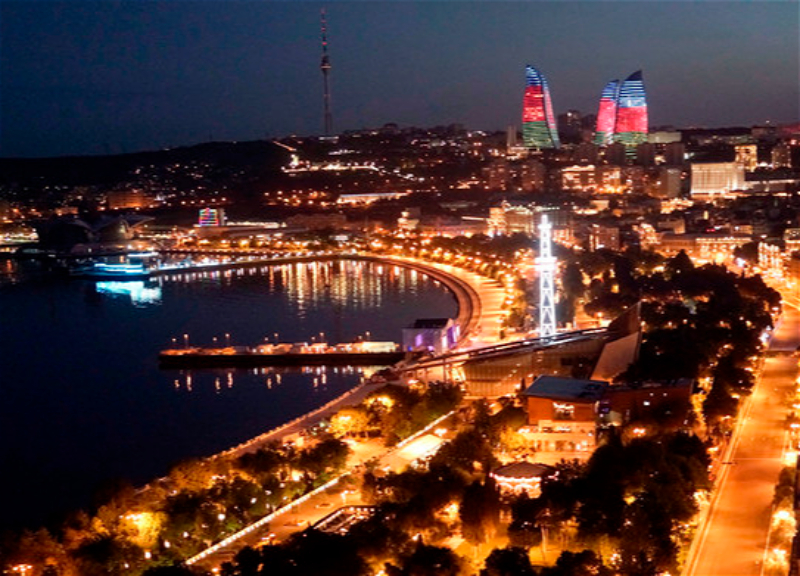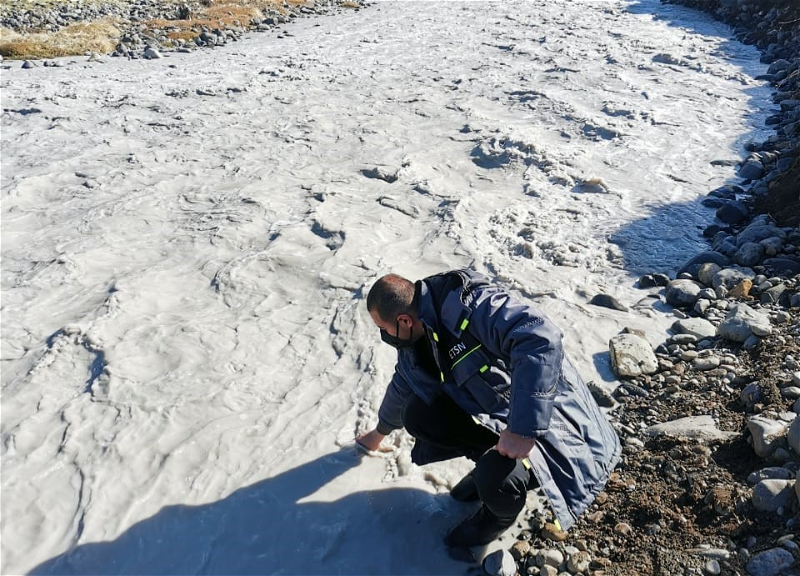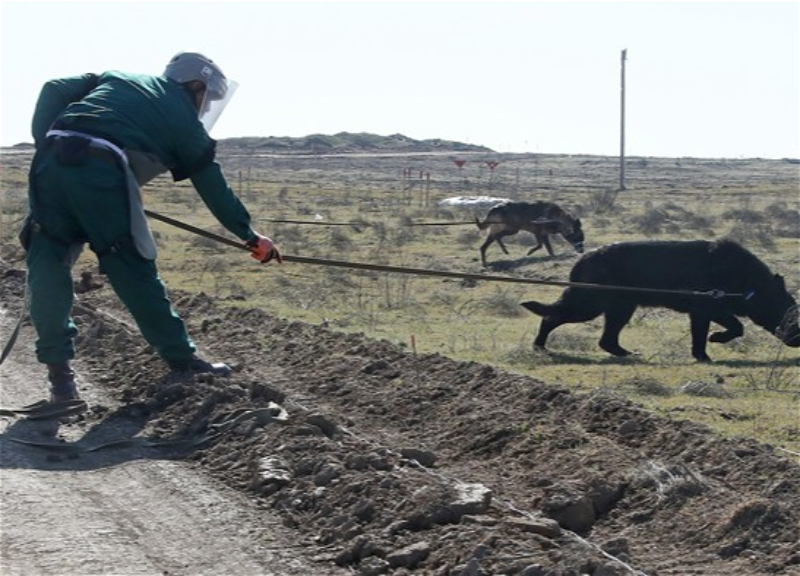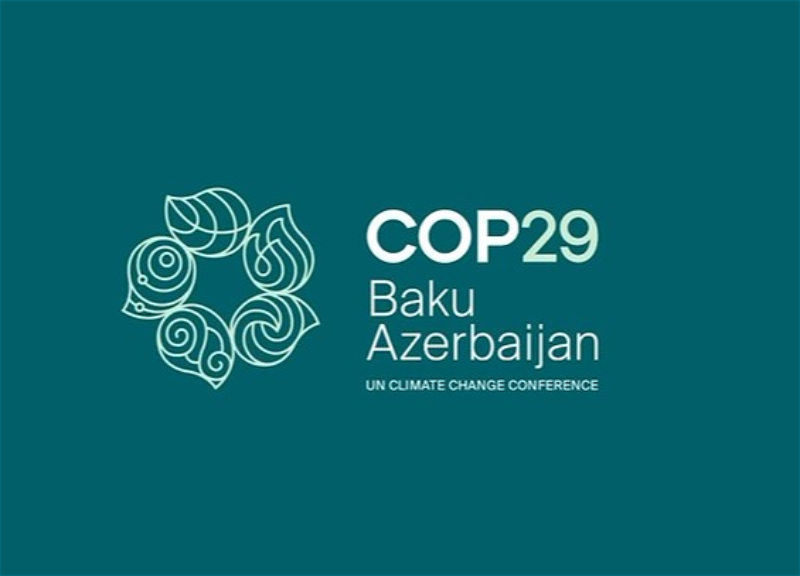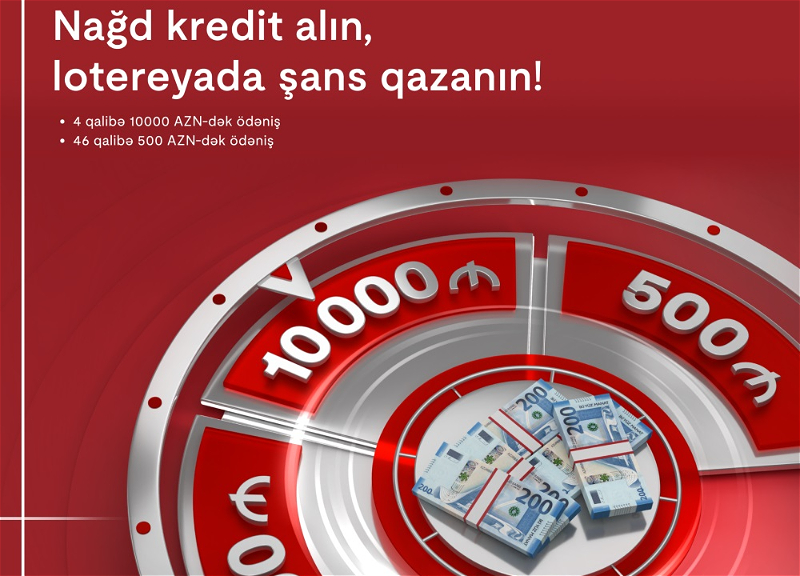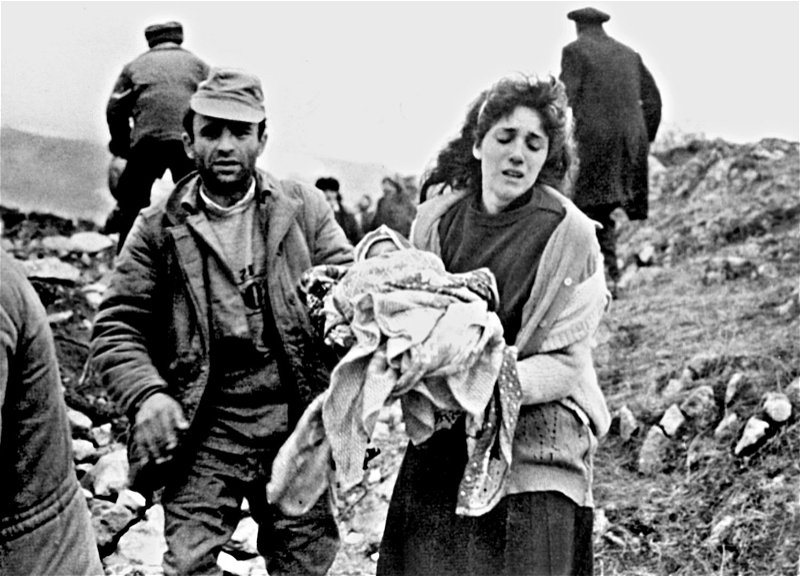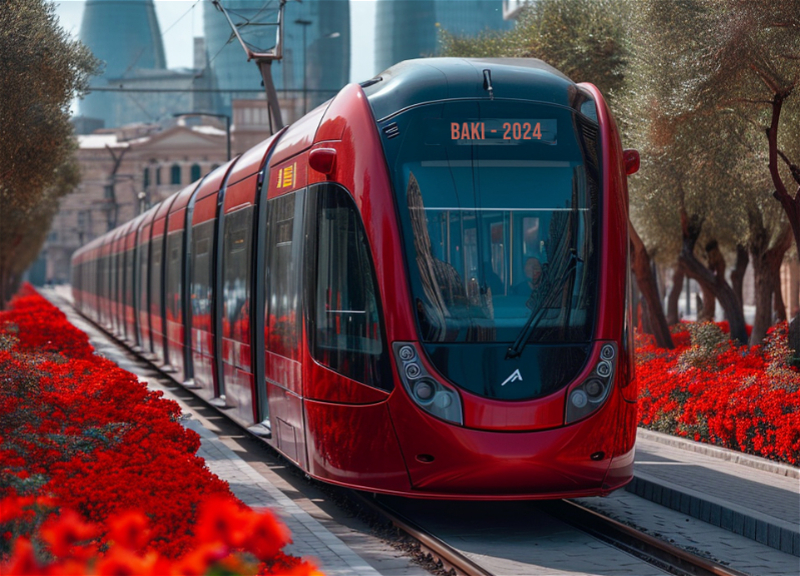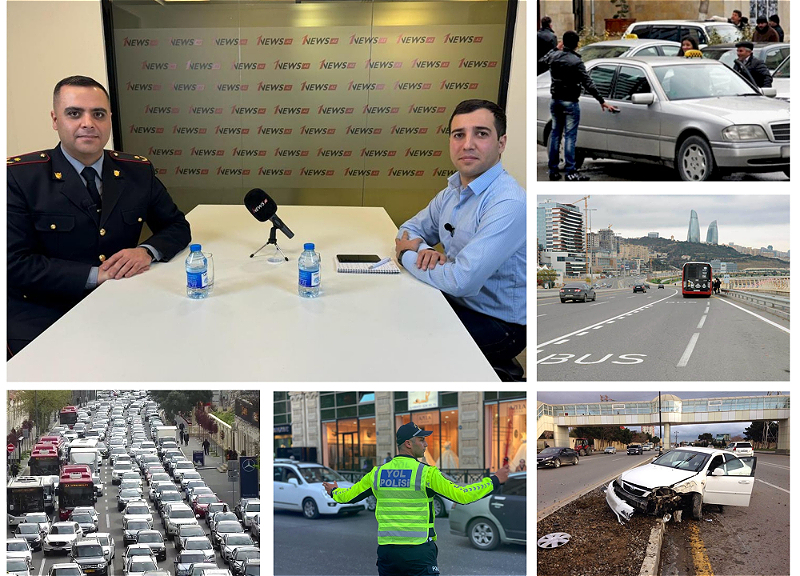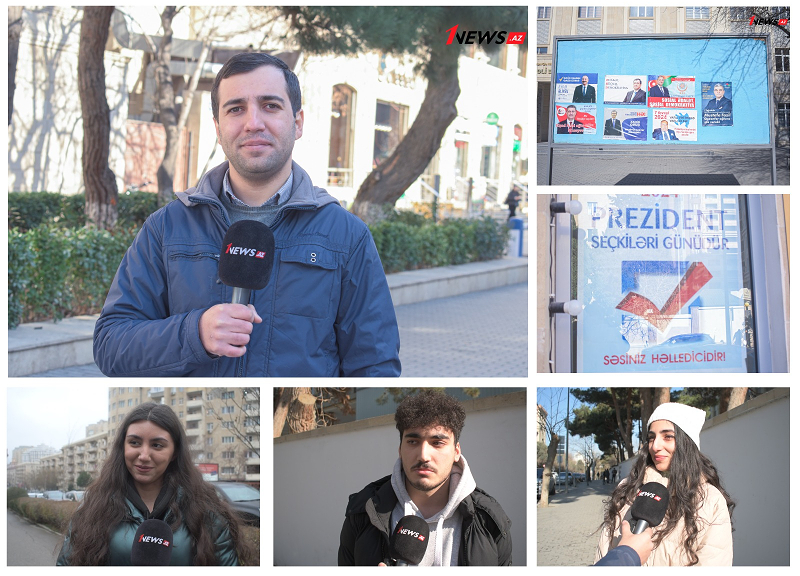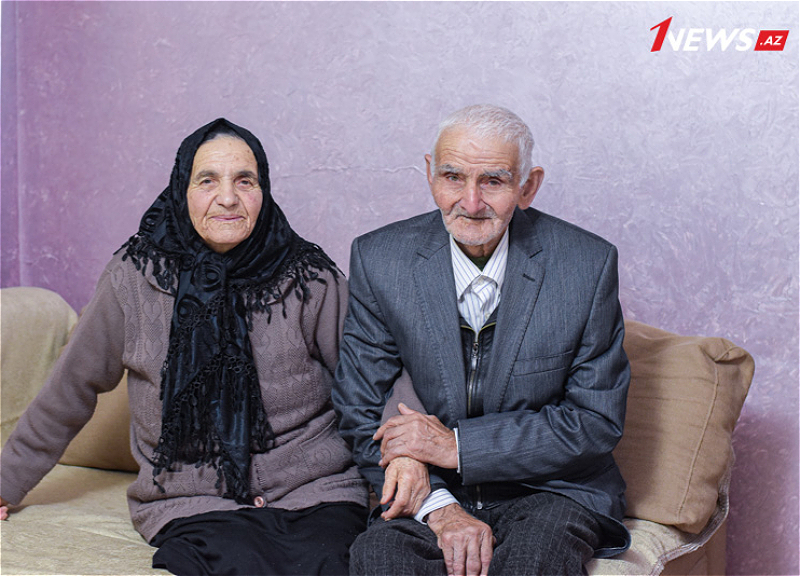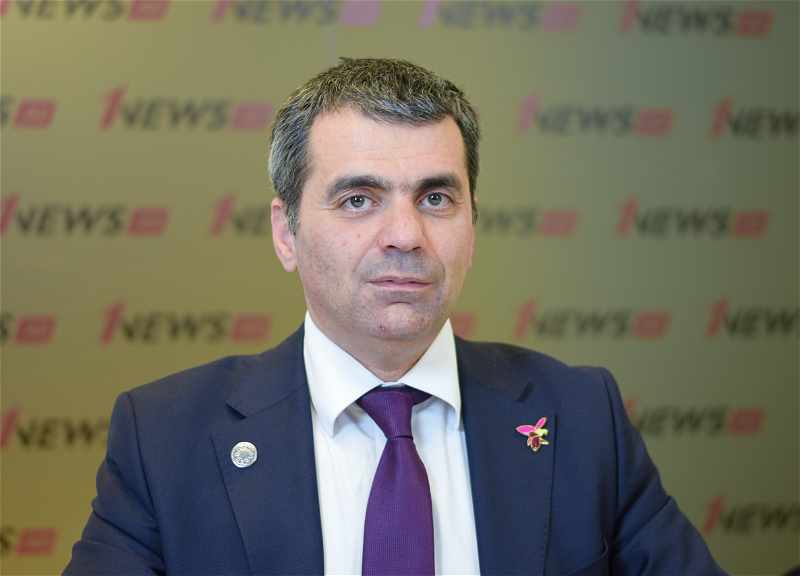Azerbaijan within the Context of the Silk Road
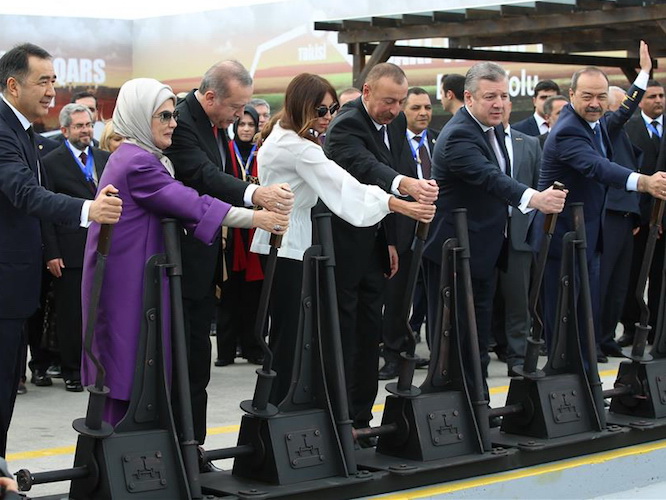
Azerbaijan is geographically located on East-West and North-South transportation corridors and its territories were used historically by Silk Road caravans.
Therefore, revival of the Silk Road related initiatives would not leave Azerbaijan outside the plans and, on the contrary, would attempt to use the country’s transit potential and natural resources as a driver on their way of development from Asia to Europe and back. It is obvious that Azerbaijan is also keen to transform these opportunities into benefits and share them with its neighbours.
The government of Azerbaijan does not see silk roads as a simple route or branch to be used only for transit purposes but as a focus more on its contribution to the development of the non-oil sector of the economy.
For this purpose, Azerbaijani President Ilham Aliyev has issued a number of decrees and given orders on construction of the Baku-Tbilisi-Kars railway, relocation of the country’s main sea port to a Alat and the creation of the Baku International Sea Trade Port, a decree on the establishment of a free trade zone in the territory of the port, the creation of industrial zones and estates as well as IT parks in the regions of the country.
Currently, Azerbaijan has three major transportation infrastructure projects: the Baku-Tbilisi-Kars railway which was launched at the end of last year; the Baku International Sea Trade Port currently under construction; and the already completed upgrade of Heydar Aliyev International Airport. In addition to that, existing highways and roads are also in much better condition in comparison to neighbouring countries.
The idea of establishing the Baku-Tbilisi-Kars railway line goes back to 1993, after Turkey closed down the railway segment extending from Kars (Turkey) to Gumru (Armenia), because of the Armenian occupation of the Nagorno Karabagh region and its surrounding territories of Azerbaijan. Later in 2005 the presidents of Turkey, Azerbaijan and Georgia issued a joint declaration regarding the BTK railway connection and its construction started in 2007.
The biggest challenge in developing the project was in funding. Georgia would never be able to afford the construction of its section of the line by itself. The participating countries, mainly Georgia, started negotiations with the USA, World Bank, Asian Development Bank, the European Union, and the European Bank for Reconstruction and Development all of whom declined to finance the project.
The EU refused to finance the BTK project, as it supported the re-opening of the Kars-Gumru-Tbilisi line. The US congress prohibited the financing of the project by the American Export-Import Bank under pressure by the Armenian lobby.
Azerbaijan, in this case, took on the financing burden of the project’s Georgian part itself. Since the inception of the BTK project many obstacles occurred, however, with strong determination and the will of mainly the Azerbaijani government and its leader Ilham Aliyev the project work continued to progress.
The project is not beneficial only to the three participating countries but all other countries also may join the project, and even Armenia can benefit from the road once it returns the occupied territories of Azerbaijan. It is in fact beneficial, both from political and economic aspects, for China also to use the BTK for transportation of its goods to European countries. From an economic perspective, it is much shorter than any other routes. The maritime route generally takes 36 days to reach a destination.
Trans-Siberia route 20 days, Chongqing-Xinjiang-Europe route 16 days, whereas Belt and Road Initiative with the BTK route takes just 12 days. Another economic aspect is in tariffs, which are being negotiated between the relevant governments and it is believed there will be consents on standard and viable tariffs.
From a political perspective, the route passing through Azerbaijan is more secure in comparison with other routes due to its geographical and security advantages. When it comes to the BTK, for example, all the three main participating countries are interested in the development of the route and stand behind the security of the route in a collaborative manner.

Beyond its transit potential there is a systemized approach to the BTK railroad and its connection to land, air, port, facilities as well as logistical and industrial estates being built across the county. It is argued that FDI should play a significant role in the development of these areas. The government alone cannot take on such a huge financial burden alongside other expenditures, especially during a period of fluctuating oil price.
To attract FDI into the country’s non-oil sector there should be created a proper legal and regulatory framework as was created for the oil sector. As PSAs are applied to the oil sector, PPPs and similar financing opportunities can be applied to the non-oil sector in line with other relevant taxation, financial and legislative developments.
In fact, one can already witness signs of these developments through a presidential decree on November 30, 2016, on BOT law. The decree gave exemption to investors dealing with this type of scheme from paying state duties, as well as several other decrees on privatization plans proving that Azerbaijan is on the right track. But the speed of the reforms should be increased. However, one can understand the county’s caution, as it has seen what reforms of the rail sector in Britain through privatization did not make it better in most cases.
Going back just a few years, all the official data shows that the Azerbaijani economy was highly dependent on oil revenues, although this was quite understandable in context. However, the country has shrewdly weaned itself off its oil-dependency in recent years. As Ilham Aliyev stated in one of his speeches, “In Azerbaijan, we see sustainable development as planning for our future.
There was a development concept called ‘Azerbaijan 2020: vision into the future,’ where the country’s government set out main targets for sustainable development for the near future. It is necessary to diversify the economy for development, because oil and gas were the main criteria of our success. The money generated from the oil industry is paving the way for the favorable financial conditions that will enable Azerbaijan to increasingly focus on economic diversification.”
Another set of documents, strategic road maps on perspectives of the national economy, which was developed after the oil price crunch under the auspice of the President Aliyev provided further ground for the next development plans. Therefore, it becomes obvious that Azerbaijan fully intends to improve the conditions for doing business by enacting business-friendly legislation and pursuing pro-business policies.
Furthermore, taxation is not anymore a burden for the business environment and plays a supportive role with transparent initiatives. Even though there are still some challenges, in general the country seems to be successfully on its way towards this direction that has highlighted in ‘Azerbaijan 2020: Vision into the future’ Development Concept 4 basic areas, which are transportation, agriculture, IT and tourism.
Since Azerbaijan does not have a land border with any of the Central Asian states, maritime transportation via the Caspian is of key strategic importance. It should be noted that Baku International Sea Trade Port was commissioned in 2015 and a state-of-the-art ferry terminal there is already operational.
The president of Azerbaijan has declared that the port’s initial capacity was 10 million tons and 50,000 containers per year. Upon completion of the third phase of construction soon, the port’s capacity will rise to 25 million tons of cargo and 1 million containers.
To exploit the full potential of its relations with other Central Asian countries, Azerbaijan requires a comprehensive and forward-looking regional strategy. This is being successfully led by President Aliyev who developed the country’s bilateral ties with Kazakhstan, Turkmenistan and Uzbekistan.
In addition to the Trans-Caspian approach the Azerbaijani government also developed its economic ties with Iran allowing Chinese and Indian goods to be transported through territories of Iran and Azerbaijan.
These all show that the country’s government is keen to transform Azerbaijan into a transportation hub, where all transportation corridors can cross, creating added value for the benefit of the country as well as collaborating countries.
